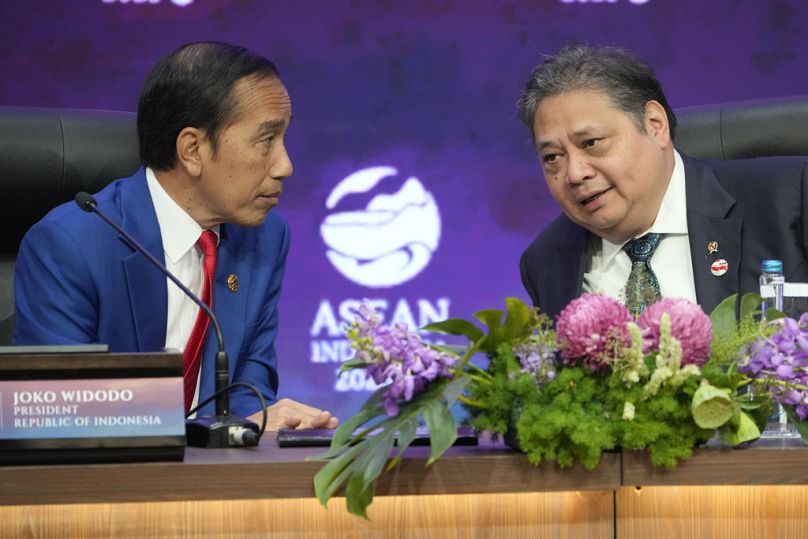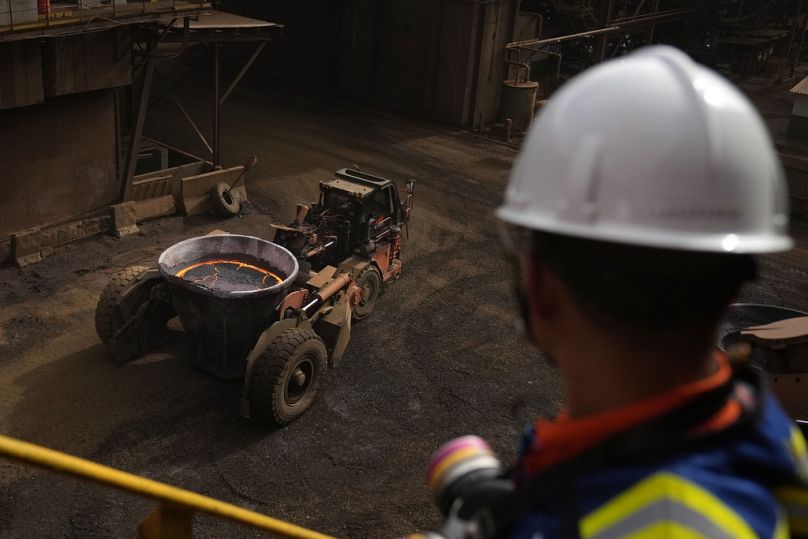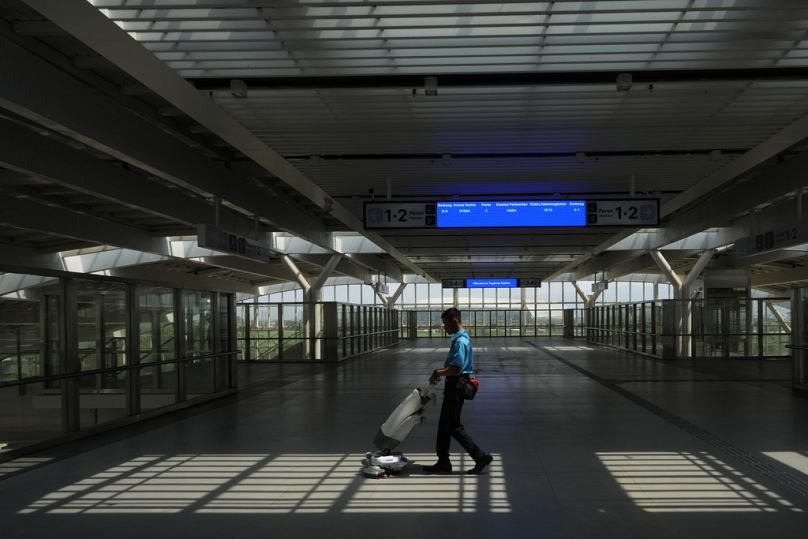Amidst a global landscape riddled with rivalries, Indonesia continues to lead by example, advocating for nations to collaborate on pressing global issues — serving as a geopolitical and economic bridge, Arsjad Rasjid writes.
In the wake of the 2023 ASEAN Business Advisory Council (BAC) Summit's conclusion, Indonesia's emergence as a global leader is taking centre stage. European policymakers should take note.
Assuming the pivotal roles of ASEAN's Chair this year and the G20 Presidency in 2022, Indonesia has rightfully earned global recognition for its potential to not only drive regional development but also set a compelling global example.
With Southeast Asia's largest economy and the world's third-largest democracy, Indonesia is rapidly asserting itself as a formidable presence on the global stage.
According to some forecasts, Indonesia could even overtake Russia by 2026, becoming the sixth-largest economy worldwide when measured by purchasing power parity (PPP).
Let's unite for the greater good
Indonesia, like most nations, was severely affected by the COVID-19 pandemic, leading to its shift down from upper-middle income to lower-middle income status as of July 2021.
Recognising the pandemic's devastating economic and human toll, the Indonesian Presidency chose the theme "Recover Together, Recover Stronger" for the G20 summit last October.
This theme encompassed three pillars: global health architecture, sustainable energy transition, and digital transformation.
Indonesian President Joko Widodo, popularly known as Jokowi, by emphasising these issues, called upon world leaders to unite for the greater good.
In light of the current geopolitical tensions ignited by Russia's full-scale invasion of Ukraine, Indonesia urged nations to set aside their differences to uphold the multilateral system, especially crucial for the stability of developing nations.
Elevating key industries along the global value chain
Since February last year, when Indonesia's gross domestic product (GDP) rebounded to pre-pandemic levels with over 5% annual growth, the nation showcased a remarkable capacity for recovery.
Key drivers of this resurgence included a surge in household consumption, the gradual easing of pandemic restrictions, supportive fiscal policies, and substantial growth in commodity exports.
Notably, Indonesia's trade performance has thrived due to elevated global commodity prices, encompassing coal, palm oil, iron, and steel shipments, as underscored by the Head of Statistics Indonesia, Margo Yuwono.
With the OECD’s economic outlook predicting a moderation in global GDP growth, it is evident that Indonesia's current account cannot perpetually rely on high natural resource prices.
Thus, both the government and the private sector have taken proactive steps to elevate key industries along the global value chain.
One government initiative led by President Jokowi involved imposing export restrictions on raw minerals in 2020, compelling foreign companies to invest in Indonesian smelters to retain access to nickel resources.
While this move faced legal challenges from the EU, it is estimated that the development of downstream facilities boosted the total added value of nickel commodities by approximately $12 billion in 2022.
From the fledging EV sector to a move toward cleaner tech
At the same time, the private sector has complemented these efforts to attract investment by expanding their capacities across various sectors, including the burgeoning electric vehicle (EV) market.
Indonesia, boasting the world's third-largest two-wheeler market with approximately 6 million motorcycles sold annually, holds vast potential in the EV sector, and private actors like Indika Energy are responding with complete mobility solutions.
Indonesia's substantial reserves of a vital mineral essential for EV batteries present a significant opportunity for public and private sectors to collaborate in transforming Indonesia and ASEAN into a global hub for EV production.
With this long-term vision in mind, Indonesia's private sector has actively embraced innovative technology to make mineral processing more sustainable for local communities and the environment.
An illustrative case is our adoption of the groundbreaking DNi technology, enabling nickel producers to utilise lower-grade ores to produce high-grade nickel, with over 98% of nitric acid being recyclable, all while minimising waste streams.
This not only addressed Indonesia's historical underinvestment in ore processing but also facilitated the expansion of facilities powered by cleaner technologies.
The world's fourth most populous nation wants to lead by example
By aligning its long-term development goals with a carbon-neutral strategy, Indonesia exemplifies how the public and private sectors can effectively collaborate to drive sustainable and resilient economic growth.
At the ASEAN BAC summit, the potential of public-private cooperation emerged as a central theme, emphasising the private sector's role in catalysing policy reforms that can position ASEAN at the epicentre of global economic interconnectedness.
In my capacity as Chair of the Indonesian Chamber of Commerce and Industry, KADIN, I have reiterated this point on numerous occasions, emphasising that while ASEAN has made significant progress in promoting such partnerships — including with Europe — it remains an ongoing journey of growth and development.
From the G20 Summit in 2022 to the recent ASEAN BAC Summit, Indonesia has undeniably showcased its role as a global leader.
As the world's fourth-most-populous nation, composed of over 13,000 islands, Indonesia is harnessing its unique characteristics to its advantage.
Amidst a global landscape riddled with rivalries, Indonesia continues to lead by example, advocating for nations to collaborate on pressing global issues — serving as a geopolitical and economic bridge — while actively involving the private sector and its dynamic capabilities.
It is no surprise therefore that Indonesia has been hailed as one of the most promising prospects on the global stage in the years to come — and the West should take notice.
Arsjad Rasjid chairs the Indonesian Chamber of Commerce and Industry (KADIN) and the ASEAN Business Advisory Council (ASEAN-BAC). He also serves as President Director of Indika Energy.
At Euronews, we believe all views matter. Contact us at view@euronews.com to send pitches or submissions and be part of the conversation.



